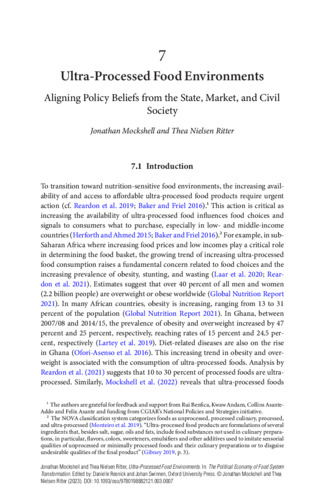Ultra-processed food environments: Aligning policy beliefs from the state, market, and civil society
Why is finding solutions to combat the increasing access to affordable ultra-processed foods so controversial and what strategies are necessary for policy change? Beyond the existing rational choice answers to this question, this chapter applies a political economy analysis of coalitions and policy beliefs in the ultra-processed food environment in a developing economy context. By combining the Advocacy Coalition Framework with the discourse analysis approach and factor analysis to a case study in Ghana, the chapter reveals a trichotomy of coalitions in the food environment, consisting of state, market, and civil society actors. The discourses reveal shared policy beliefs on the need for more regulation; independent beliefs on production incentives; and divergent beliefs on public awareness. The evidence highlights entry points for policy-oriented learning and policy change, including subsidies to support access to healthy foods, a prohibitive tax on ultra-processed foods, voluntary regulations, labelling and advertisement bans, and regulations.

